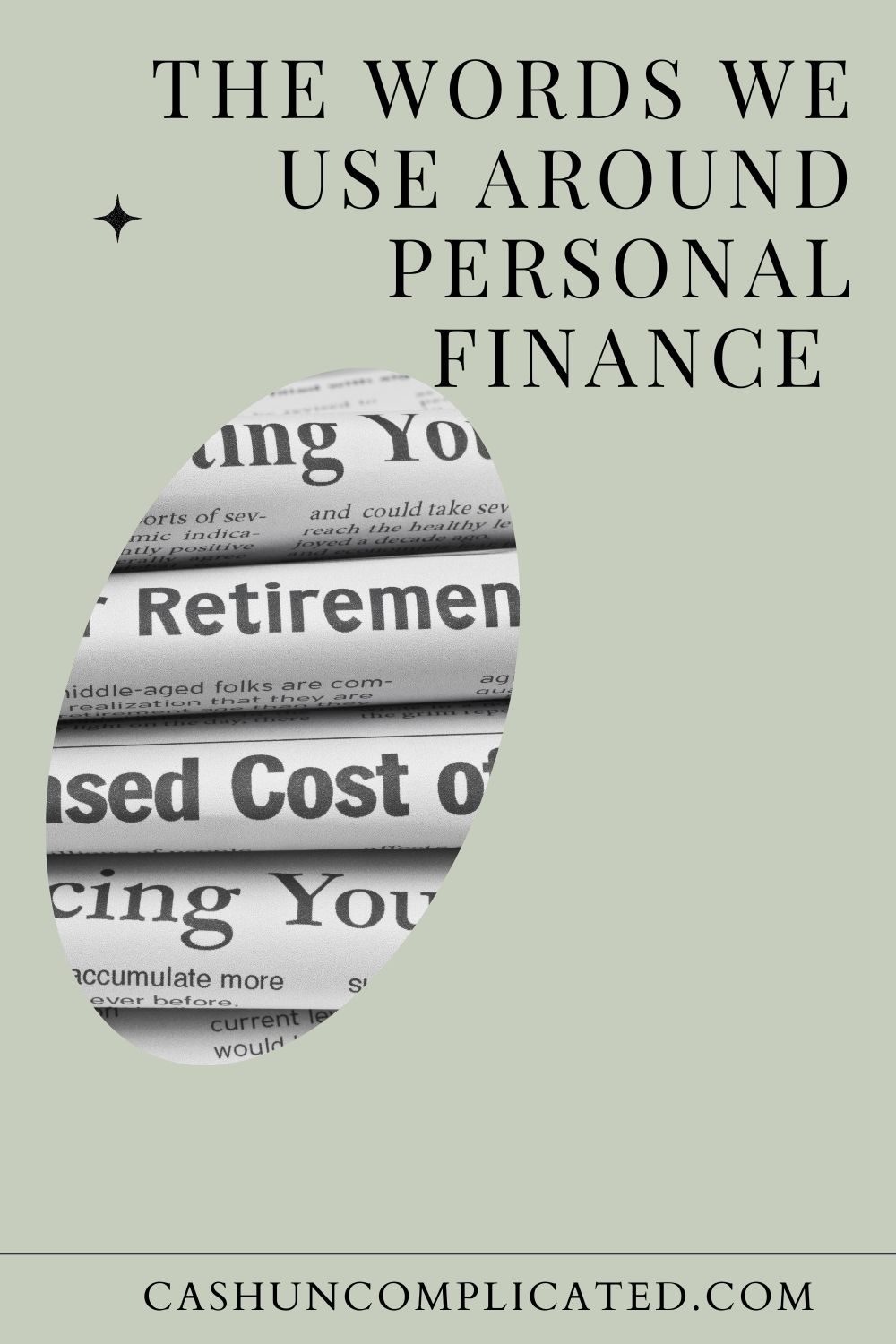The words we use around personal finance matter. Before we get going too much, let me give you a background of what prompted this post. A couple months ago I was flying with my family from San Diego to Hawaii for a winter vacation (we were seeking reprieve from the frigid 60 degree temps in a normal San Diego “winter”)
When flying, I normally set a goal to outline at least five to six blog posts. Not only does it help pass the time, but it gives me a jumpstart on my writing.
Somewhere over the Pacific Ocean, and in the middle of outlining another post, a flight attendant got on the intercom and said “The seatbelt signs are going on, I don’t know what we’re going through, but we’re going through something.”
My palms immediately got sweaty and my eyes wide.
What does “something” mean and why doesn’t he know what we’re going through? I thought to myself.
Why Words Around Personal Finance Matter
The words we use in life matter. Like the example with the flight attendant, his words mattered. If he casually mentioned that we’re experiencing minor turbulence and the captain wants seatbelts on as a precaution, I would have thought nothing of it.
But when he said we’re going through “something” and didn’t know what it was, it made me nervous. His words had the ability to affect my thoughts and perceptions around the flight (Of course I allowed them to so I have a lot of accountability as well).
The same goes for the words we use around personal finance. Our choice of words impact the way we think, feel, and behave around personal finance. Using action-oriented and problem-solving language empowers us to find solutions and persevere. Negative words have the opposite effect.
Types of Words to Use Around Personal Finance
There are certain types of words to use around personal finance that are likely to provide better results. Which will be outlined in the next several sections.
Number 1: Positive
Nothing genius here, number one is very simple. And that’s to use positive words. I’m not talking about rainbows and ice cream here, just generally positive language.
I would never recommend anyone utter words about how magical consumer debt is or how glorious hundreds of thousands in student loans are. That’s positive, but it’s not the kind of positive I’m talking about.
What I do advocate is using generally positive language. Such as:
- “I will figure this out.”
- “Financially, I’m definitely on the right track.”
- “With time, I am going to see a lot of success in my personal finances”
- “My money plan is already working, it’s just going to take some more time.”
This is the kind of positive language I’m talking about. It captures progress with a look towards the future. And it’s the kind of language that will help you move forward and advance.
Number 2: Optimistic
Optimism is important. Without it, there’s not a lot of hope. Think about a task you recently completed.
If you were optimistic towards that task, you were likely to complete it, and do a good job. But if you lacked optimism, you probably went through the motions and did mediocre or bad work.
The same principle applies to the words you use around personal finance. If you use language suggesting failure, you’re likely to fail. Use words around success and you’re much more likely to succeed, and seek ways to find success.
Related: Change the Way You Talk to Yourself About Money
For example, imagine a major personal finance issue like eliminating consumer debt. Someone with an attitude of optimism/using optimistic language would say things like:
- “I’m making progress.”
- “Looks like this is going to take some time, but I’ve got this.”
- “My plan is good, it’s going to take about two and a half years to get out of consumer debt.”
Number 3: Realistic
This might seem contrary to the first two points about positivity and optimism, but stay with me here. The words we use around personal finance need to be realistic. Otherwise, it’s so outlandish that nobody will even believe their own words, much less convince anyone else to believe them.
It would be realistic for someone with a net worth of one million dollars and no consumer debt to talk about increasing their net worth by $200,000 next year. Same for someone who makes $250,000 per year to talk about saving 60 percent of their income.
Those are all “in the ballpark” and very achievable. But someone with $30,000 in credit card debt who talks about building a real estate empire this year is pretty far fetched. That’s not to say they can never get to that point, it’s just going to take longer than a year.
Realistic language sets the table for realistic actions. Which can then turn into big things, but nothing happens overnight.
Number 4: Solution-Focused
Solution-focused language gets things accomplished while vague language rarely gets anything done. Some examples of solution-focused language:
- Two hours per day for two weeks is going to get this project done.
- Investing 30 percent of my income will put me on track to be financially independent in 12 years.
- $300 per month towards my credit card bill and I’ll be consumer debt free in nine months.
These are all solution-focused and actionable. Do these things and a certain result is almost guaranteed to occur, barring any unforeseen major events.
Number 5: Growth-Oriented
Anyone who has had any kind of success has also known plenty of failure.
- An elite marathon runner has lost races
- A professional football player has lost big games
- Top notch business CEO’s and business owners have missed out on job opportunities or been fired
- High-level authors have written books that didn’t sell
Because failure is part of the pathway to success, it’s important to use growth-oriented language. This allows us to take failures and turn them into lessons and growth opportunities.
Otherwise, they are just failures without the learning–which is a waste in my opinion.
Number 6: Accountability-Focused/Within Our Realm of Control
Think about the last month and some of the conversations you’ve had. How many of those conversations involved people talking to you about events they couldn’t control? Such as:
- Interest rates rising
- World events
- The economy
- Issues overseas
Nothing wrong talking about things we can’t control–the problem comes when the conversations turn to complaining. Language that is accountability focused is the most productive.
For example, rising interest rates aren’t something an individual real estate investor can control. However, the investor can control other things like:
- How much they offer on a property
- Negotiating a buy-down of interest rates
- Improving the property to increase rents
These are the types of things the conversations should trend toward, not broad-based complaining about things out of the realm of control.
Conclusion
As you probably guessed by the fact that I’m writing this, the flight ended up fine. We had minor turbulence–and after 15 to 20 minutes, it was over. Shortly after the flight attendants words, I quickly remembered that flying is statistically very safe and the chances were really unlikely that anything was going to happen.
I chalked it up to a poor choice of words, not any legitimate danger.
But the point is that our words matter, including our words around personal finance. Positive and action-oriented words help produce good thoughts and outcomes. While negative words help produce negative thoughts, actions, and results.
The lesson here is to pay attention to what we say and be intentional about our words–because it matters.












This Post Has 2 Comments
What’s up, just wanted to say, I liked this post.
It was practical. Keep on posting!
Appreciate it!
Comments are closed.